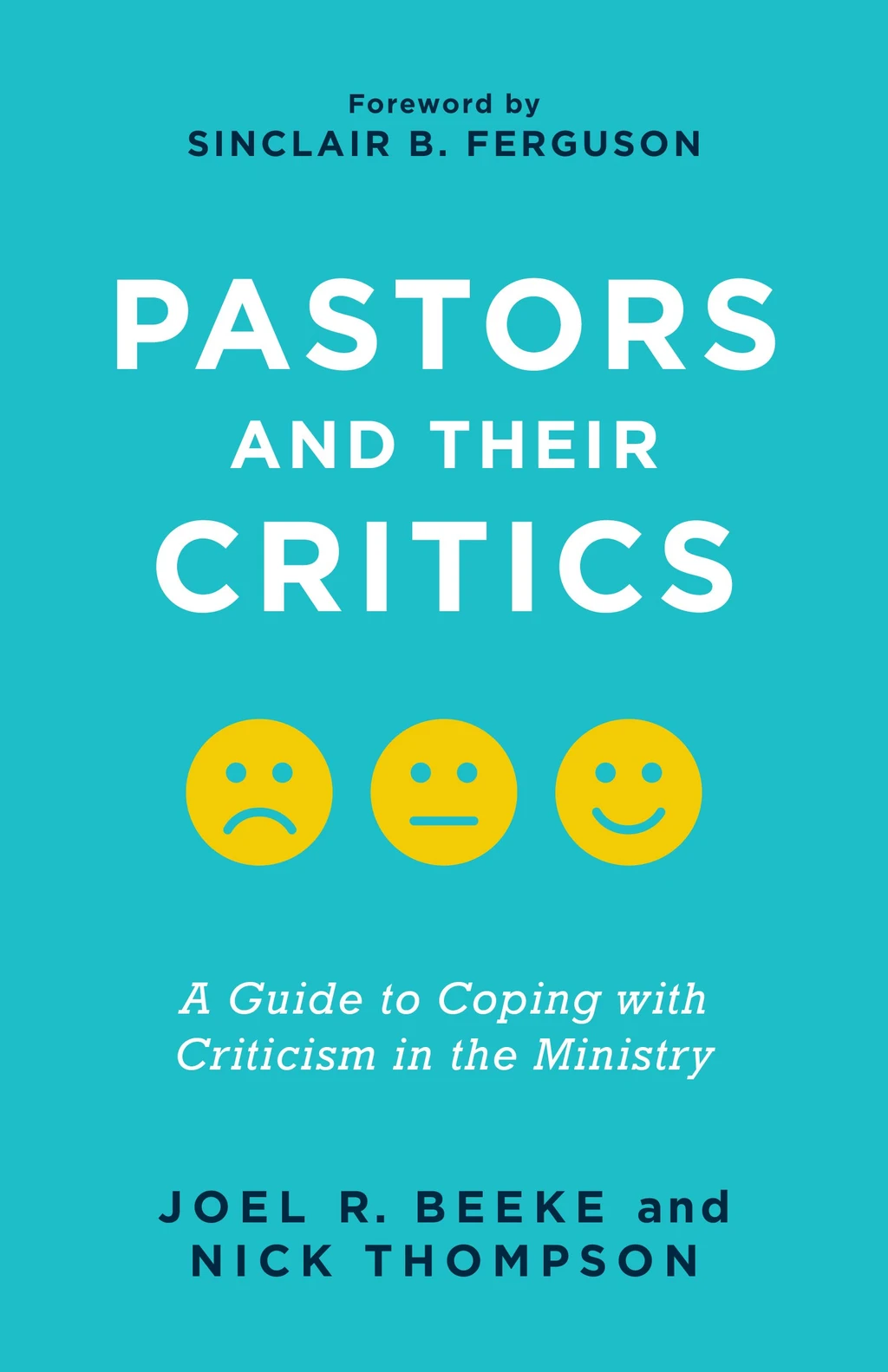
Joel R. Beeke and Nick Thompson
Reviewed by: Albert J. Tricarico and Ryan McGraw
Pastors and Their Critics: A Guide to Coping with Criticism in the Ministry, by Joel R. Beeke and Nick Thompson. P&R, 2020. Paperback, 192 pages, $10.86 (Amazon). Reviewed by OP minister Albert J. Tricarico.
I don’t know many people who enjoy being criticized. I surely don’t. And yet, we should all welcome criticism as God’s means of helping us grow in self-understanding and in grace. Pastors and Their Critics helps readers consider the place of criticism in ministry and guides them through the process of giving it and receiving it in the best ways.
The book has four parts. “Biblical Foundations for Coping with Criticism” surveys the Old Testament with examples of criticism and then orients us all with a portrait of Jesus, our meek and bold redeemer and example. “Practical Principles for Coping with Criticism” provides gentle excavations designed for the spiritual growth of the criticized. More than cope, Christ’s servants can flourish when they embrace the right perspectives. “Practical Principles for Constructive Criticism in the Church” includes helpful guidance on how to criticize in the most constructive ways. The section headings include words like affirmation, hope, and compassion—all powerful descriptions of healing speech. “Theological Vision for Coping with Criticism” urges us to live in light of the reality of Christ—his glory, his kingdom, and his return.
Here are some insights I gained from the second part.
A realistic servant of the church can expect both affirmations and corrections. There are positive ways of responding to each, and pastors should learn those ways.
We need to remember that there are unseen spiritual forces at work. Satan wants to undermine ministry. God desires our flourishing and uses all things toward that end. The criticisms we receive, while sometimes uncharitably given, are always tools of the Spirit used for our good and the good of those we love and serve.
The authors urge us always to seek the Lord—specifically in response to criticism, which God uses “to breathe new life into our praying” (90). “Search me” petitions (Ps. 139:23–24) ought to be regular in the prayer life of the Christian. This is all the more vital for a pastor.
We should receive all criticism with open humility, regardless of the motive of the critic and whether or not the criticism is altogether valid. Assuming that there are lessons contained in every criticism will advance the cause of personal sanctification. It also harmonizes with what we know about ourselves—we are sinful, profoundly imperfect, and in regular need of correction.
The book includes a helpful, soul-penetrating checklist to aid pastors in examining their actions, emphases, tone, motives, and personality. Self-reflection will prepare us to receive criticisms well.
In an appendix, Thompson provides a helpful list of things to consider on the subject while in seminary.
Dr. Chad VanDixhoorn confesses in his commendation that he regrets this little volume was not published ten years ago. As I reflect on my own training and subsequent labors in the church, I want to say, “Make that forty years.”
* * * * * * * * * * * * * * * *
Here is a second review of this book by Ryan McGraw.
March 30, 2025
On the Trail with a Missionary
March 23, 2025
Midnight Mercies: Walking with God Through Depression in Motherhood
March 16, 2025
March 09, 2025
Zwingli the Pastor: A Life in Conflict
March 02, 2025
February 23, 2025
African Heroes: Discovering Our Christian Heritage
February 16, 2025
© 2025 The Orthodox Presbyterian Church